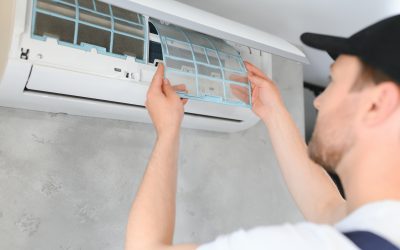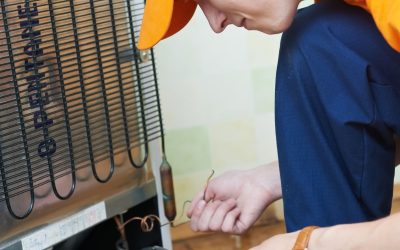Every year, HVAC systems cause health problems and deaths. It’s not because they’re intrinsically dangerous. Instead, rampant neglect and old, aging systems leads to a bad combination of variables, creating various different hazards for you and your family.
HVAC systems are generally split between cooling and heating systems – both function in much the same way. There’s a generation method for heat, and generation method for cooling air – combine that with a distribution method and a controller/thermostat, and you have your HVAC system.
Some Hazards to Avoid
However, some methods of heat generation (or absence thereof) are less safe than others – and all furnaces and air conditioners need to be checked up and possibly repaired on at least an annual basis. And what better time for heating and air conditioning repair than just before the cusp of a strong winter?
Let’s take a look at some of the hazards air conditioning units can pose to a home when they’re neglected. The most common and obvious is the spreading of microorganisms – specifically fungi and pollen. Older air conditioning systems are perfect for this, because they’re essentially a box that sucks air in and filters it before shooting it back out – while leaving a lot of things hanging on the filter. Unless you regularly clean out your air conditioning system, you’re at danger of facing serious health consequences – especially in the respiratory department.
This is especially worrisome in an office setting, because the amount of people working together in an office makes infection and spread that much easier.
The fix? Get newer air conditioners. New filters in air conditioners are designed to kill most harmful airborne hazards, keeping people safe and producing cleaner air indoors. It’s still a good idea to get regular cleaning sessions.
Beware of Carbon Monoxide
Old and neglected heaters can be dangerous as well, but in a different way. Gas heaters, for example, could leak gas – which can result in some devastating damage when not dealt with immediately. However, gas is usually detected quickly due to its distinct smell. However, a byproduct of a gas heater’s burning process – carbon monoxide – is much more dangerous to deal with. Odorless and undetected until physical symptoms appear, older gas heaters and neglected heaters are at a greater risk of leaking carbon monoxide and becoming a health hazard.
By contacting local HVAC companies like DC Cheek, and making heating and air conditioning repair a priority before the winter and summer seasons, homeowners increase their system’s longevity and reduce the chance of an accident.


